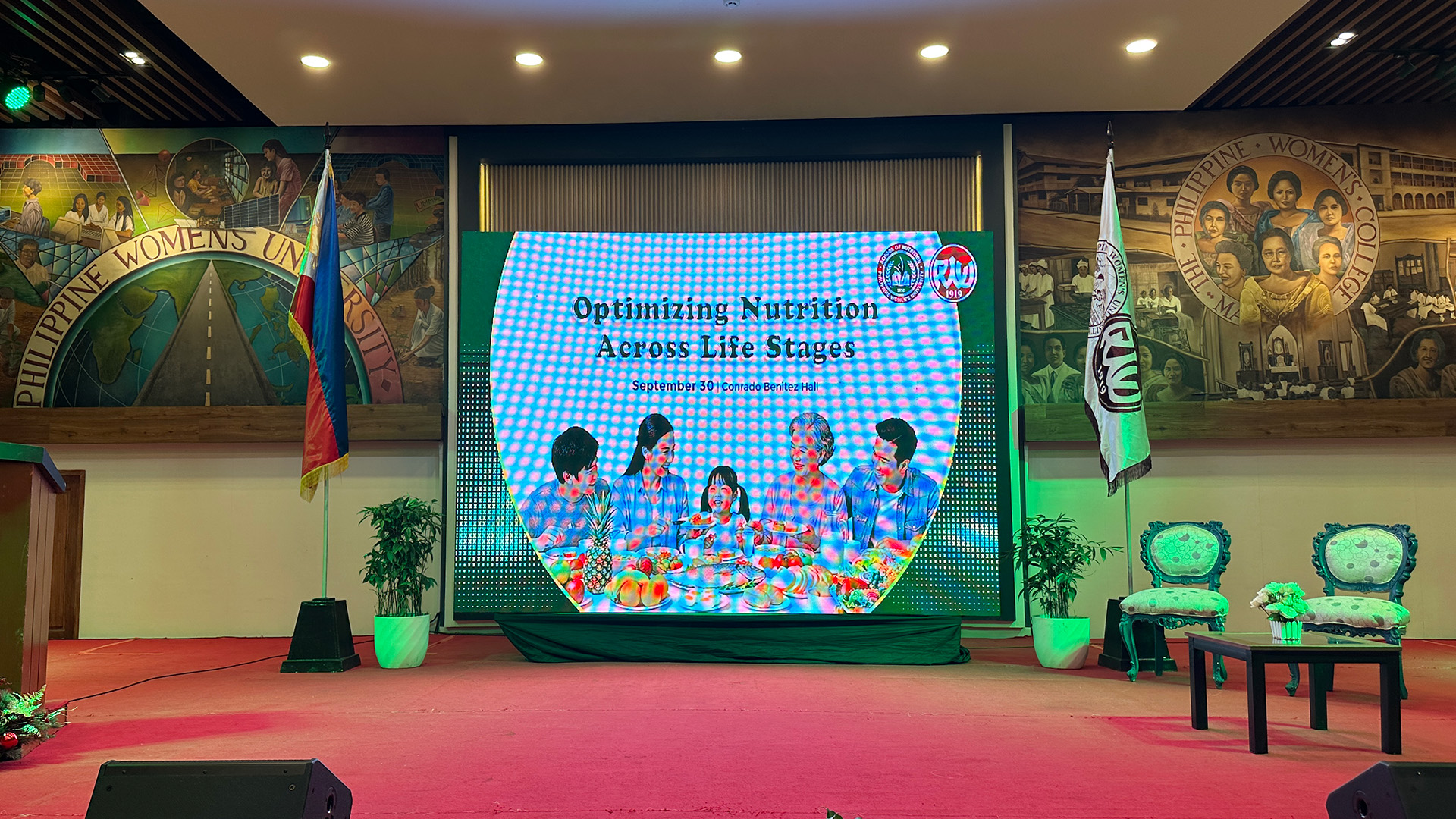The Philippine Women’s University (PWU) School of Nutrition hosted a multi-sectoral symposium titled “Optimizing Nutrition Across Life Stages” on September 30, 2025, bringing together experts, researchers, policymakers, and advocates to discuss the country’s nutritional challenges and promote inclusive, sustainable approaches to health and wellness.
PWU President Marco Alfredo Benitez emphasized that nutrition is a lifelong commitment, especially amid issues like malnutrition and food insecurity. “The theme of our gathering is both timely and relevant. It reminds us that nutrition is not a one-time concern but a lifelong commitment,” he said.

Dean Emeritus Dr. Leonora Panlasigui, RND, PhD opened the discussions by defining optimum nutrition as providing the best, not maximum, amount of nutrients needed by the body. “The tendency is that we eat more than what we need, and that is not good for our health and well-being,” she noted.

Four speakers addressed the nutritional needs and priorities at different life stages. Dr. Myalin Talampas, Pediatrician and Professor from Davao Medical Center, cited the First 1000 Days Law (RA 11148) as key to preventing wasting and stunting, emphasizing milk and dairy as nutrient-dense options that bridge dietary gaps in children.
For adolescents, Dr. Diane Mendoza-Sarmiento of UST stressed that this growth period requires higher nutrient intake, warning that meal skipping can harm both physical and mental health. She encouraged including dairy in daily breakfasts to support development, prevent anemia, and enhance cognition.
Dr. Nina Reyes, Internal Medicine specialist, discussed nutrition in adulthood and recommended balanced diets with dairy, whole grains, and fiber-rich foods while limiting sodium and trans fat, which are linked to noncommunicable diseases. She also cited the DOST-FNRI’s Filipino Food Plate Model, which advises low-fat dairy once or twice a week.

For older adults, Dr. Mavil Cervo from PWU explained that as nutrient absorption declines with age, fortified foods and low-fat milk can help maintain health and quality of life.
A panel discussion followed, tackling how affordable and nutritious foods, such as milk and dairy, can reach underserved communities, especially during calamities.
“Nutrition is not just about food. It is about ensuring health, dignity, and quality of life at every stage,” said Assoc. Prof. Vanessa Ceballos-Marasigan, Program Chair of PWU School of Nutrition. “To truly optimize nutrition, our strategies must be affordable, accessible, and inclusive, reaching every Filipino regardless of circumstance.










